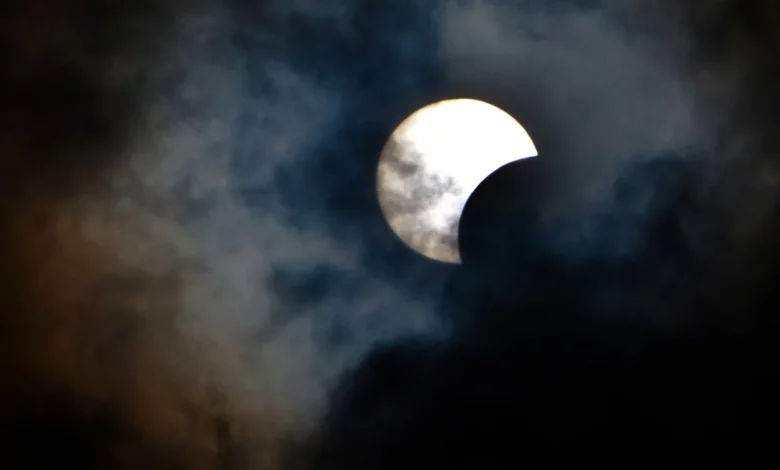
An annular solar eclipse will grace the skies on Saturday, October 14, the second and last of the current year.
The year’s first solar eclipse was on April 20, and was a rare type of “hybrid/mixed” eclipse. Its timing coincided with the conjunction of the month of Shawwal of the Hijri year 1444.
The phenomenon took approximately five hours and 25 minutes from beginning to end.
The annular solar eclipse on October 14 will be invisible in Egypt.
What is a solar eclipse?
A solar eclipse is the fall of the moon’s shadow on the Earth and occurs during the day.
The phenomenon of a solar eclipse can be used to confirm the beginnings and ends of the lunar or Hijri months, as it clearly reflects the movement of the moon around the earth and the movement of earth around the sun.
This eclipse occurs when the moon is so far from the Earth that it does not completely cover the disk of the sun, resulting in a ring of light around the dark moon (an annular eclipse).
The eclipse’s path
According to Professor of Astronomy at the National Research Institute of Astronomy and Geophysics (NRIAG) Ashraf Tadros, the path of the solar eclipse will begin in the Pacific Ocean off the coast of southern Canada and move across the southwestern US, Central America, Colombia, and Brazil.
It will be a partial eclipse visible in most parts of North and South America and the western part of the African continent.
Caution while viewing
The astronomy professor warned that diurnal phenomena related to the sun are dangerous to the human eye, even during an eclipse.




